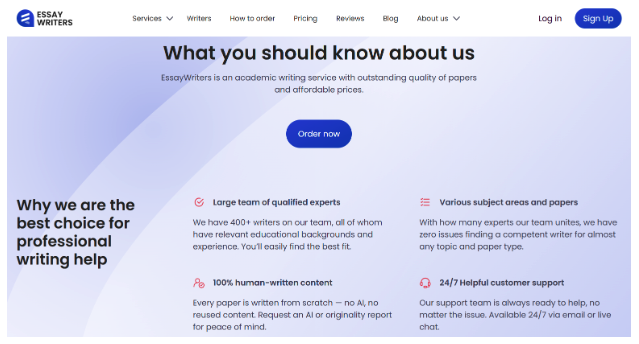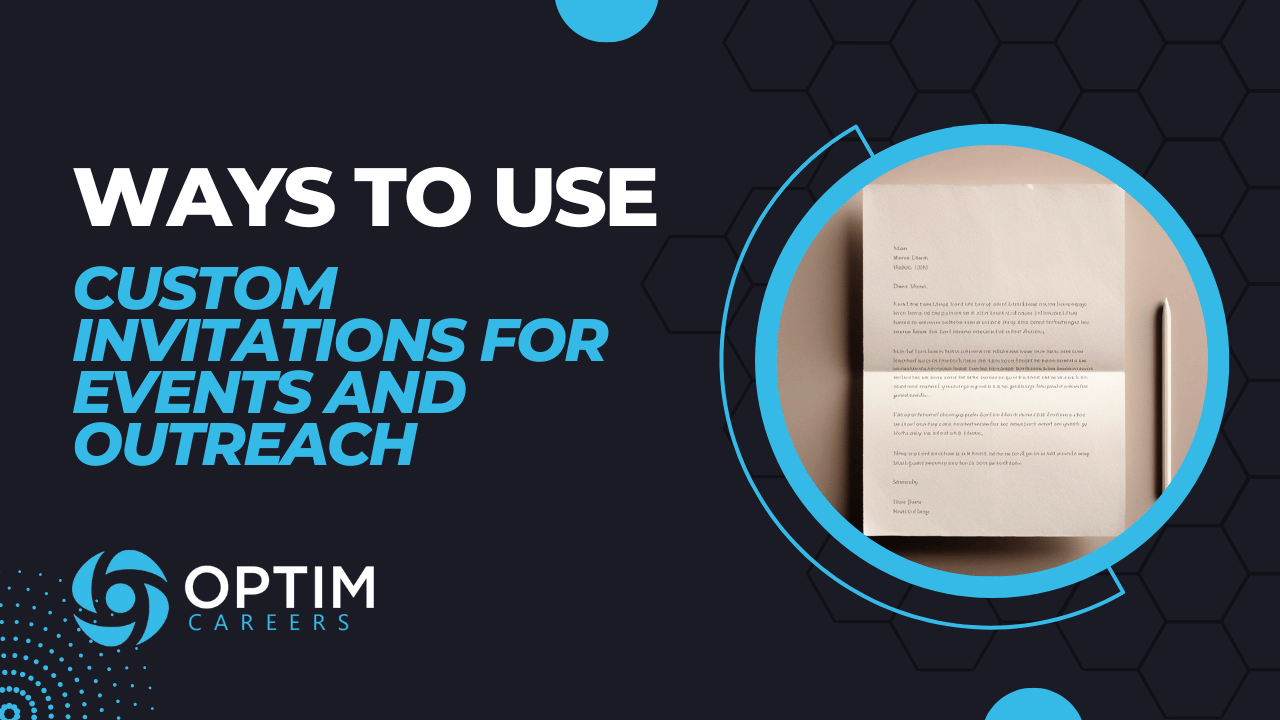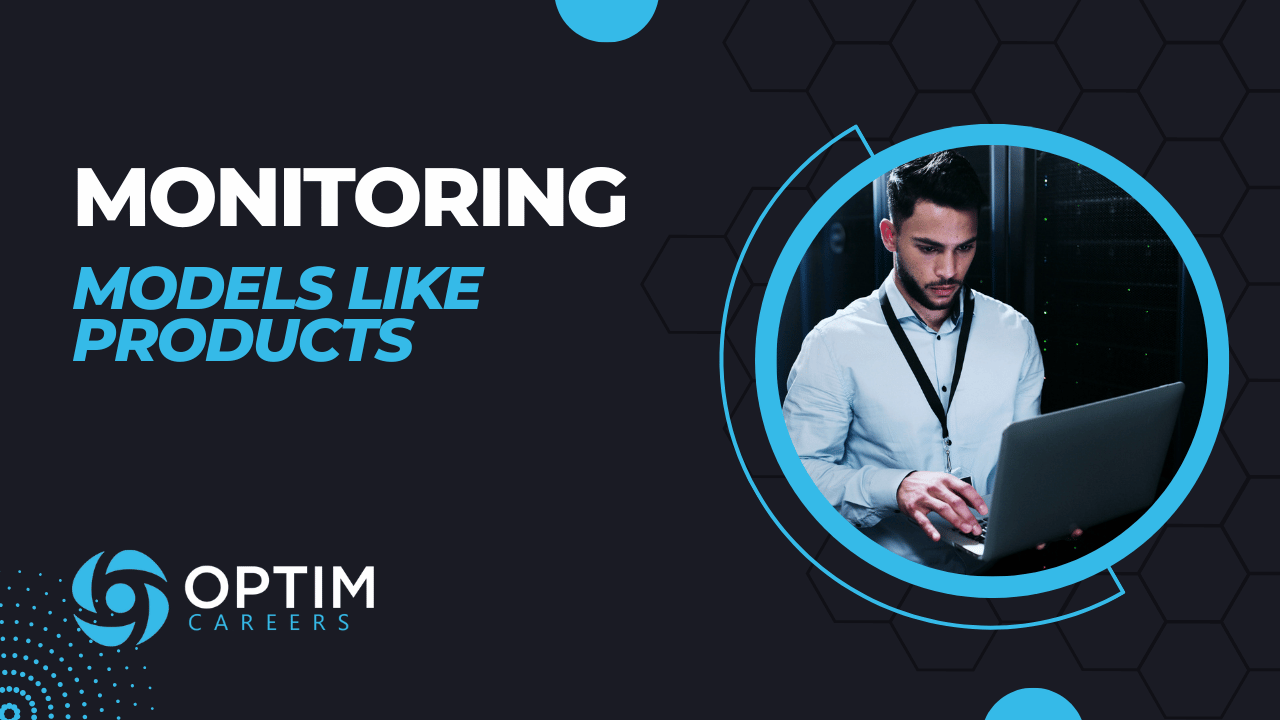Where Do You See Yourself in 5 Years [3-Step Answer]
In a world where marriages, smartphones, and appliances don’t even last 5 years, it can be intimidating to predict where your career will be in that time. Yet, this question is still asked by many interviewers, especially for entry-level and mid-career roles.
I’ve also seen a lot of poor advice about how to answer this question. Employers are a diverse group so trying to find a way to answer this question that works for everyone is quite challenging. In this article, I’m going to share with you a 3-step answer framework that will work with just about anyone.
The secret is a simple shift in how we think about career development. Let’s get into it.
Why Employers Ask “Where Do You See Yourself in 5 Years?”
Knowing why someone is asking you a question is key to framing the right answer.
Alignment of Personal Goals and Job Requirements
Whether it is a recruiter or a hiring manager asking the question, most of the time, they are trying to determine how well your goals align with what they can offer you. Can they provide the job you want? Can they provide a career path that is desirable to you? Can they provide you with the resources you’ll need?
All of these questions are racing through their mind and your answer will give them clues.
For example, if you mention that you are seeking to be promoted, the interviewer is going to think about whether they have a pathway to create that for you. There are no right or wrong answers per se.
For example, in this case, if the company has a leadership training program and a heavy emphasis on promoting from within, talking about promotions down the road could be an advantage for you. On the other hand, if they don’t, it may cause some red flags for the hiring team. It’s not that you’re not qualified, but that the two of you may not be aligned in goals at this particular moment.
The more aligned your goals are with their opportunity, the more satisfied they know you’ll be in the job.
Likelihood of Retention
Alignment of goals also leads to retention (keeping an employee). Hiring is a buying transaction. In this case, the employer is buying your skills and time to solve a problem they have. You’re also an investment and they are trying to make the best investment possible.
Part of that is trying to assess how long they might be able to keep you in the job or on their team before you start looking for another job.
Are You Realistic
This is a tough one because it’s fairly subjective based on experiences. What might seem unrealistic to me could be very realistic to the next person. But most people want to know that you have realistic expectations for your future.
If you are a recent graduate interviewing for an entry-level role and you mention wanting to be CFO in 5 years, that’s probably not very realistic.
Employers want to know you’ve thought about this job and whether it is the best next step for you. Having a realistic path forward and reasonable goals can show them how well you’ve thought this through and can also give insights into your ability to make sound judgments.
Understand Your Aspirations and Values
Many interviewers just want to understand your aspirations and values. They want to know what makes you tick, what kind of person you are, and who you want to become professionally (and sometimes personally too).
Is This an Outdated Question
If you ask me, I’d say yes. If you are an interviewer and you’re still asking this question, you, yourself may be the unrealistic one. If you’re asking this question to see if they’ll be with your company in 5 years - that may be a pipe dream.
I know employers used to ask this question for this reason, but if you’re still doing so, I think you’re living in a fantasy world. If you can keep your talent for 2 years you’re one of the lucky ones.
Also, no one should be trying to see if the candidate is interested in this role (at this point). Platitudes do no one any good. All they have is your job description, which hopefully was well-written. That’s not enough to decide if they are interested. Instead, it would be wise to gauge the likelihood of them being interested based on their answers to similar questions. Neither of you knows enough yet. That’s the whole purpose of the interview.
Lastly, most cutting-edge companies don’t even do 5-year forecasts. Many have put more emphasis on 3-year forecasts. If we’re doing a 3 year plan (which I think is smart), then why are we still asking candidates about their 5-year plans? It makes no sense. It’s much more reasonable to plan for 3 years than 5.
Instead of asking about their 5-year plans, try asking these questions:
What are your career aspirations?
What do you want to accomplish over the next year? Two years?
Based on what you know about this role, how do you see it fitting into your overall career plan? (P.S. You may want to share more about the job and the company in the interview first before asking this)
What skills would you like to learn over the next 2 years?
Another recruiter, Sarah Blankenship, suggests these questions as good alternatives:
Tell me about a project or challenge you’re proud of. What did you learn from it?
What do you need in a work environment to be successful and motivated?
How do you approach learning new skills or adapting to change in your role?
How to Structure Your Answer to This Question
Most people rush into telling an interviewer the job titles they hope to have. Don’t do that. Instead of focusing on the destination, focus on the journey of how you will get there. Here is a simple 2-step process to impress every interviewer who asks this question.
Mention the Skills You Wish to Develop
Start by focusing on the skills you want to build and how you will apply them. This prevents you from locking yourself into a defined path you can’t get out of or leading the interviewer into thinking that your career goals are not aligned with the job.
This is especially important if the question is asked early in the interview process because you won’t have enough information to know what the opportunity may offer you yet.
Because this question is focused on the future, you can talk about skills you don’t possess yet (as long as they are not critical to doing the job now) or discuss one you already have but wish to develop further.
Word choice matters here, so if this is a skill required for the job you applied for, don’t mention that you want to learn it from scratch, but rather that you hope to build on it.
If you come from a different department or industry, you could also talk about applying that skill in new settings and challenges.
Discuss the Impact You Want to Make
Evan Brooksby, an instructor at Clarkson University, mentions that envisioning your future isn’t about job titles, degrees, or climbing a ladder, but rather the kind of impact that you can have on the world, on a company, or on the teams that you work with.
Every hiring manager I’ve ever spoken with cares much more about the impact you can have on their organization than the mere skills you bring to the table.
The second part of answering this question involves sharing the impact you hope you can create for the department you will work in.
If you’re in sales, that might be bringing in a certain number of new accounts. If you’re in customer success, that might be a certain number of logo retention. If you’re in customer service, that might mean handling a certain number of calls each hour. If you’re in IT support, that may be resolving so many client issues per day.
You could also focus on achievements and awards as measures of impact. If you were in mortgage sales, you might mention that you hope to be on the Scotsman Guide list of Top Originators. If you were in agency recruitment, you could mention making the President’s Club as a goal.
Ask This Question
Most people answer the question and then wait for the next question like they’re in an exam. Don’t do that. The best interviewers create dialogue and conversation. After you’ve answered, ask this question.
Whoever ends up stepping into this role, where do you hope to see them in 3 to 5 years?
Sample Answers for Different Situations
Let’s put all of that into action with some example answers and then talk about why they work so well.
Professional Job Interview Examples
Entry-Level Positions
I recently completed an internship where I provided heavy administrative support including maintaining Salesforce records. In the next 5 years, I’d like to become an expert with Salesforce to the point where I can provide meaningful suggestions on how to improve systems, data storage, and data analysis in addition to everyday Salesforce administration.
Mid-Career Transitions
Over the next 5 years, I see myself learning different aspects of the business and how they all work together. I’ve spent the past 3 years in marketing and love it, but I believe that by also learning how sales, product management, and customer success work within the business I’ll be able to increase the ROI of the marketing initiatives I work on.
Leadership Aspirations
Over the next 5 years, I hope to embed myself in the company’s strategic plans and learn how strategic planning is done here. I’ve been a manager for 4 years, heavily focused on executing those plans, but over the next 5 years, I hope to start contributing more to strategy execution as I learn the business.
Industry Specific Examples
Accounting
I’ve worked extensively with fixed assets, roll forwards, and warranty accruals over the past two years. In the next 5 years, I hope to learn how to take on lease obligations and debt when it comes to the balance sheet. I’d like to be able to handle more complex accounts and really become a partner to the management team I help support.
Procurement
In the next 5 years, I want to become an expert at deep diving into vendor relationships and scorecarding. I want to be able to contribute to not only maintaining relationships but understanding which relationships provide the most value and leveraging data to negotiate the best pricing for the company.
Healthcare
I’ve been in charge of the administration of hospitals with up to 500 beds, analyzing root causes of clinical errors, standardizing SOPs, creating shared governance councils, and mitigating hundreds of thousands in practice liabilities. Over the next 5 years, I see my next challenge as applying those same principles at scale to larger organizations with up to 1,000 beds. I also see this as my way to increase the size of my impact on the community that we serve.
Nonprofit
I’ve spent the past 5 years in private industry working heavily with data mining and analysis that has increased profit margins by 22%. In the next 5 years, I’d like to continue building on those skills and apply them to new challenges such as assessing marketing segmentation to improve things like donation size and donor retention.
Best Practices To Answer This Question
As you’ve read through some of the samples, you may have noticed some things. Besides simply mentioning the skills you want to develop and the impact you want to have, I think it’s important to cover some additional details on best practices.
Actually Know Your Career Goals
When was the last time you took a minute to think about your career goals and trajectory? Chances are life has dealt you some cards and you’ve just been doing your thing for a while now. That’s ok, but take a minute to think about your career before you go on the next interview.
What do you want to do? Are you happy doing the work that you’ve been doing? Is a career change in your future?
Of course, you’re not going to share all of that information in your interview when answering “Where do you see yourself in 5 years,” but your answers will help you know what to share.
Ask yourself what skills you need to develop to achieve those goals. What impact do you want to have? What job titles will you need to hold? What experiences will you need to experience?
If you need help with that, especially for a career change, I have a list of career coaches that I trust. One who does great work is Susan Collins.
Align Your Goals With the Job
Once you’ve figured out what your career goals are, you need to find overlap with the job you are interviewing for. If you talk about skill development and the impacts you want to have, they should align with what the job and the company can offer you.
You don’t want to go into an interview for accounting and tell them that you hope to have exposure to social media strategies and ad management. Those aren’t aligned, even if your short and long term career goals are to do those things. You need to find something that aligns.
The same goes for if you are applying for a contractor role, you may consider holding back that you’re really looking for a long-term permanent job (unless the job has a high likelihood of converting and they’ve told you that). Otherwise, you may introduce fears that you’ll leave half-way through the project once you’ve found something permanent.
Showing Commitment to Long-Term Growth
It’s a fact that people with a growth mindset outperform those with a fixed mindset. It’s also well-known that people who are intrinsically motivated typically outperform those who are not. If you play your cards right and talk about skills and impact instead of job titles you can show your growth mindset and motivation. This will help you greatly as the interview progresses.
Be Specific
Notice in all my examples, I was specific about the skills I wanted to develop. I was also intentional in selecting them. This is not the time to dish out platitudes or vague statements.
This question isn’t about ambition, but rather intention. You want to answer in a way that tells the interviewer that you know what you want and you’ve thought this out. It also will help them connect the dots on why you are interested in this position.
Common Mistakes to Avoid When Answering
Believing the Employer Wants You to Tell Them That You’ll be Committed for 5 Years
Yes, every employer wants you to think you’ll be with them for as long as possible, but if you think that answering this question with, “I hope to be here doing this job” is what they want to hear, you may want to rethink that approach.
Instead, think about what the next 5 years could look like at this employer, in this job and figure out what skills you could develop and what impact you could make. Focus on that.
Being Too Vague
@aliceincareerland How to answer “Where do you see yourself in 5 years?” 👉 "In the next five years, l'd love to see myself really settled in this industry, making a solid contribution to a team like this one. I'm excited to develop my skills further, especially in areas like [specific skill or area related to the jobl. I also hope to take on more leadership responsibilities, maybe leading a few projects or mentoring new team members. The most important thing for me is to keep learning and growing in a job l enjoy, and to be part of a company where I can make a real difference." #interviewquestions #interviewquestionsandanswers #interviewtips #career ♬ original sound - Alice in Careerland
One of the most common mistakes I see (especially from coaches with minimal recruiting and hiring experience) is that they are vague in their answers.
Take this TikTok video from Alice in Career Land. This answer could belong to anyone and if you use something like this, the interviewer is going to know that you’ve put little thought into your career and how this job is a good fit into your plan.
Here’s another terrible sample that is overly generic and vague.
“In the next 5 years, I’d like to develop my project management and strategic thinking skills. My goal is to apply them in ways that drive meaningful outcomes for my team while preparing myself to take on greater responsibility as opportunities arise.”
Ok, that’s great, but you could literally say that for almost any job - and that’s the problem. You have to be specific enough to connect the dots between your goals and what the job can offer.
Focusing on Pay, Benefits, and Commute
Look, I get it. Sometimes it is just about collecting a paycheck and personally, I don’t think there’s anything wrong with that. You can still do a good job without being an evangelist for the company.
And let’s face it, there’s nothing wrong with a Steady Eddy who just wants to do the same job, put in a good day’s work, and be happy with life.
But… I wouldn’t talk about these things in your answer.
Focusing on Job Titles
Focusing on job titles in your answer is a bad choice for a couple of reasons. First, it puts you in a box that you can’t get out of. If the company can’t provide the path to your said job title, you may have just introduced a deal breaker to your candidacy.
Second, few people know where they will be in 5 years. Opportunities come our way and we should be open to them. Situations change; we change. We get dealt cards as the game of life plays out and we don’t always know what those cards are.
Sure we can have a general direction or general idea of how we want to play the game, but if we have cards that don’t match our plans, we need to adapt. The best careers are built by those who have maximized the cards they have.
It’s ok to not have it all figured out. In fact, it may be better. Businesses change, and market conditions change. Have a direction, but don’t lock yourself into a box.
Instead of saying I want to be CFO in 5 years, talk about how you want to lead finance and accounting teams and have exposure to fundraising. Talk about experiences you hope to have, rather than defined titles.
Thinking the Interviewer is Looking for Ambition
Here’s the trouble with a lot of career advice. It puts everyone in a box and assumes all employers are the same. Trust me, I’ve worked with hundreds of them in my agency recruiting days. They are as diverse as the varieties of tomatoes I grow in my garden.
Not every employer is looking for the most ambitious person on the planet. In fact, some may fear your ambition. That’s not a joke.
Instead of focusing
Platitudes
I’ve also seen people give a lot of platitudes during their answer to this question. Chances are you have limited information about the company and the job as this question is usually asked early on in the interview stage.
At best, you have a job description which was hopefully well-written to give you some insight. Don’t try to dish out platitudes during your answer as it may come across as disingenuous.
Saying You Don’t Know
This shows you haven’t put much thought into the direction of your career and may raise red flags that you’re not a thoughtful person. Even if you’re a recent graduate, you could answer by discussing experiences you’d like to have. There’s no reason not to have an answer.
Rambling
Interviews are nerve-wracking. This leads many of us to ramble or continue speaking to fill any moments of silence. Don’t drone on about 5 or 10 things when answering this question. Pick a skill or two and an impact or two and leave them with the most important ones that match your career goals and what the job can offer.
This should be a question that deserves a short and sweet answer lasting about 20 to 60 seconds.
Follow-up Questions to Prepare For
If you mention particular skills, you should expect follow-up questions about those skills. Be prepared for the interviewer to ask about:
your current skill development;
how you plan to develop those skills; or
what you’ve done with those skills so far in previous jobs.
They may also ask about how you envision creating the impacts that you mention. Be prepared to answer questions about this. They may also ask you about why these impacts are important to you.
Expect follow-up questions. This means you need to really think through your career goals and the alignment with the job. Don’t just memorize sound bites.
Is It Okay to Get Personal With the Answer
If you’re new to interviewing or early in your career, I’d advise you don’t get too personal with the answer. If you’re more skilled with reading the room and interviewing, then you could consider getting a little personal. People do like to connect with others as humans and that means getting to know each other on a personal level during the interview too.
I remember telling one interviewer that I hoped to be married as I was currently engaged to my wife when I interviewed. But this only came after some personal conversation between the two of us and I could tell that he was interested in my personal life when he asked about my fiance’s job. Again, the two of us had quite a bit of rapport at this point. I don’t know if I’d advise this unless the interview goes there first and you are comfortable sharing it.
Where Do You See Yourself in 5 Years Recommended Reading
How to Use AI for an Interview
Cole Sperry has been a recruiter and resume writer since 2015, working with tens of thousands of job seekers, and hundreds of employers. Today Cole runs a boutique advisory firm consulting with dozens of recruiting firms and is the Managing Editor at OptimCareers.com.
Get Smarter About Job Search
Members get exclusive job search analysis, a curated coaching feed, and on-demand coaching.












